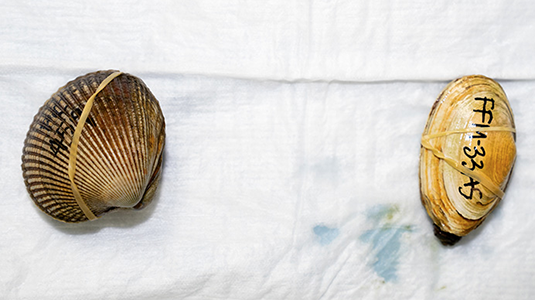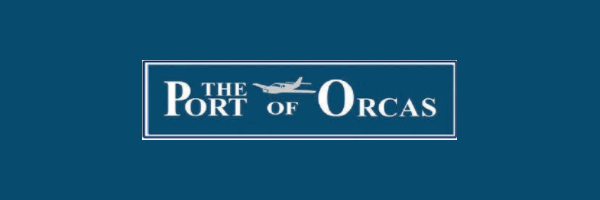||| FROM STATE DEPARTMENT OF HEALTH |||
Newest numbers. The Department of Health reported a total of 224,399 confirmed cases as of 11:59 pm on December 23. There have been 3,184 COVID-19 deaths in Washington.
For the most recent tally of cases by county, demographics, and more, visit the Department of Health’s dashboard and the state’s COVID-19 risk assessment dashboard.
December 24, 2020 data note: The Washington State Department of Health will not update the DOH dashboard on Friday, December 25. Regular reporting will resume on Saturday, December 26.
Negative test results data from November 21, 2020 through today are incomplete, thus testing numbers should be interpreted with caution. The Epidemiologic Curves tab is the most accurate representation of COVID activity and is updated daily as new cases are identified and duplicates are resolved.
COVID-19 Long-term Care Report. As of December 22, a total of 12,501 COVID-19 cases (6% of total cases) and 1,627 deaths (52% of total deaths) have been identified as associated with a long-term care (LTC) facility (i.e., nursing home, assisted living facility or adult family home). Read the full report here.
- These cases include residents as well as employees and visitors. Not all of these cases were exposed at a LTC facility.
- Many cases visited multiple places during their exposure period, and some individuals may have visited a LTC facility after disease onset.
COVID-19 transmission flattening, but not enough to reverse skyrocketing trends from early November. Wednesday the Washington State Department of Health (DOH) released the latest statewide situation report on COVID-19. The report shows substantial decreases in transmission that are still not enough to return to the lower levels of disease activity seen earlier in the fall. Based on the timing of this trend, the plateaus may be due in part to the current restrictions on gatherings and certain businesses.
Read the full report here.
COVID-19 reminders during the holiday season. As we get closer to the holidays, a time normally spent with loved ones, the Washington State Department of Health (DOH) would like to remind everyone about safer ways to spend time together this year.
As the pandemic goes on, it may feel harder than ever to pass up the opportunity to gather with family or friends. But since gathering with those outside your household is still unsafe, and disease transmission is still high, knowing how – and when – to say no is the first step to protecting your health and the health of the people you care about.
“There are several ways to do this politely and kindly,” says behavioral health psychologist Dr. Kira Mauseth, about declining an invitation to gather. “Saying no effectively starts with just that – saying no. A simple, direct response is the best way to make yourself understood and closes the door for negotiations. Offer alternatives, be honest, don’t feel pressured to keep the conversation going, and show them the facts if they have questions.”
Read the full news release here.
Number of WA Notify users tops 1.5 million, exceeds 25% of adults in Washington state. The Washington State Department of Health (DOH) announced that in less than three weeks, more than 1.5 million people activated WA Notify, a simple, anonymous exposure notification tool that uses smartphones to help stop the spread of COVID-19. The number of WA Notify users puts Washington state among the top five states for the use of exposure notification technology, when compared to our state’s adult population.
Read the full news release here.
COVID-19 vaccine distribution update from the Washington State Department of Health. The Washington State Department of Health (DOH) continues to make progress with our COVID-19 vaccine distribution and administration efforts.
Last week, providers across the state began administering initial doses of COVID-19 vaccine to high-risk health workers, and now, more than 30,000 doses of the Pfizer vaccine have been administered. We are thrilled with this progress in such a short time.
This week, we allocated 44,850 Pfizer doses and 127,900 Moderna doses. That includes:
- 153,925 doses distributed to more than 220 sites in 37 counties
- 18,825 doses distributed to support long-term care facilities as well as 14 Tribes and Urban Indian Health Programs
Read more about the vaccine here.
Coping with COVID: Grief and loss. When natural disasters happen, it is normal for people to experience loss and grief. Many of us have felt some form of loss as a result of the COVID-19 pandemic, like the loss of a loved one, change in health, job loss, or even just the loss of our “normal” life. Any grief and loss we might be feeling is layered on top of all the other stress of a pandemic. It’s ok to not feel ok if you are grieving a loss, especially during a natural disaster like this one. In this episode of our Coping with COVID podcast series, Kira Mauseth, PhD and Doug Dicharry, MD talk about how most people experience grief and loss, and provide strategies for families to cope as we make our way through the pandemic.
Read and listen here.
December 23 COVID-19 response update media briefing recording available. A recording of this week’s COVID-19 response update media briefing with Washington state’s new Secretary of Health Dr. Umair Shah and leaders from the state COVID-19 response is available from TVW here.
Inslee announces eviction moratorium extension. Gov. Jay Inslee Wednesday announced he will extend the eviction moratorium to March 31, 2021. The current moratorium was set to expire on December 31.
Additional details and a full announcement will come next week. A statement from the governor can be read here.
How federal funds helped Washington communities and families fight COVID-19 realities. Over the past nine months, Washington state has distributed more than $2.1 billion to orchestrate ongoing, significant relief efforts across multiple sectors during the COVID-19 pandemic — a public health crisis affecting more aspects of life than most people have ever experienced.
This funding was Washington’s share of the federal Coronavirus Aid, Relief and Economic Security Act (CARES). It is just a portion of the roughly $7.6 billion the federal government has sent to help the state respond to the COVID-19 pandemic and recover from the economic fallout. The federal government has provided grants directly to state and local governments, hospitals, nursing homes and other long-term care providers, health care providers, colleges and universities, food assistance programs and many other programs.
Read the full news release here.
**If you are reading theOrcasonian for free, thank your fellow islanders. If you would like to support theOrcasonian CLICK HERE to set your modestly-priced, voluntary subscription. Otherwise, no worries; we’re happy to share with you.**








